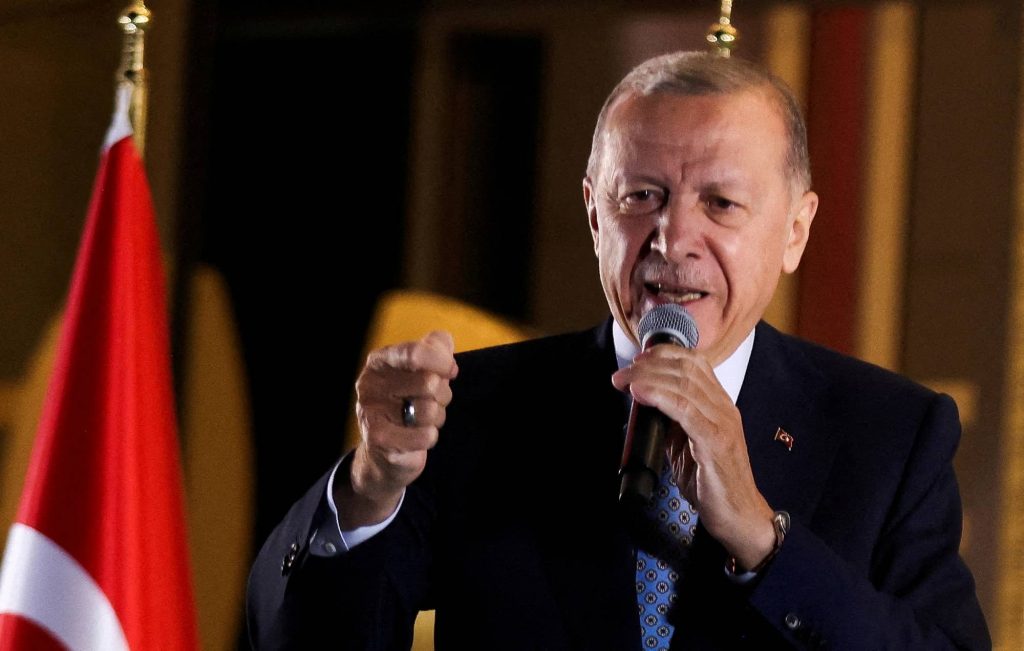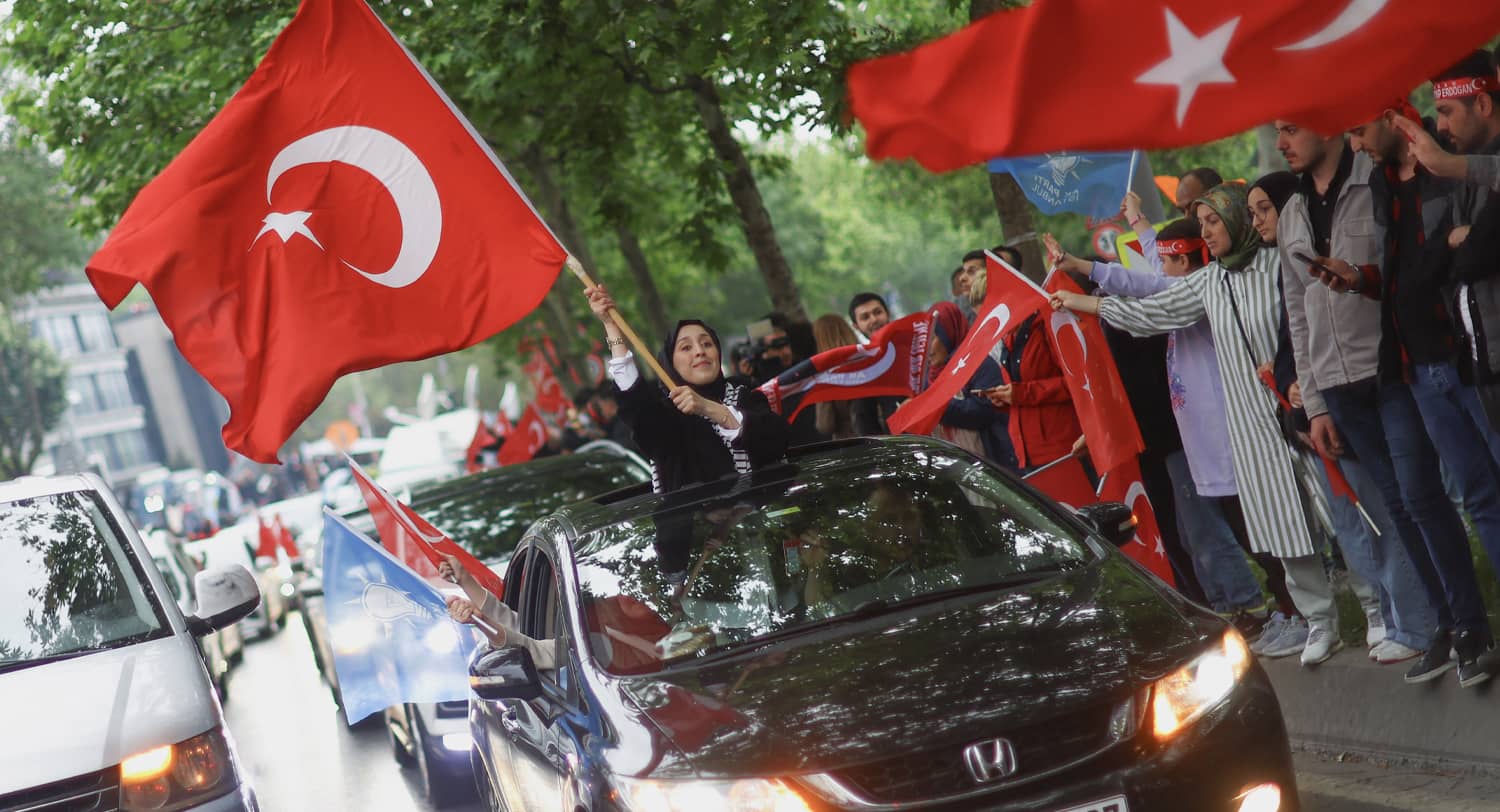The JST asked four seasoned observers of Turkey, three being former practitioners of US foreign policy and one a celebrated writer with several books on Turkey, for their views of the country in the immediate aftermath of its May elections.
The Mood in Turkey
Stable, but Existing Fractures are Widening
By Hugh Pope
Turkey’s presidential and parliamentary elections in May produced much light and noise but ultimately shook nothing much in the country. Given that proportions of the vote went largely to the same places they went five years ago, Turks voted for the status quo they know.
President Recep Tayyip Erdoğan proved once again what an extraordinary, tough political winner he is. But his victory over his rivals was marred by measures he took. He reduced his potential or actual opponents’ visibility – by a factor of 2,000:1 on the main state TV channel TRT1 – scattered legal, institutional and financial obstacles in their path and in some cases they simply ended up in jail.
The alliance against him, led by the main opposition Republican Peoples’ Party, was a major novelty of the elections. It fought honorably and hard. But when it failed to obtain a hoped-for first-round victory on May 14, it somehow deflated and lost its fighting spirit in the second round.
The country remains basically stable, but the existing fractures have widened: between the half that voted for Erdoğan and the half that didn’t, between pro-Islamists and pro-secularists; between Turkish and Kurdish nationalists; between those who want to be closer to Europeans and Americans and those who prefer Russia and the Middle East.
Meanwhile, two decades of uninterrupted power has left the ruling party looking more than ever like a vehicle for one-man rule. Partly because of the strain it was put under ahead of the elections, the treasury is empty of foreign currency. Inflation is set to roar ahead. One commentator suggested that President Erdoğan now has landed the toughest job in the country.
Ordinary people will – as usual – shoulder the burden for the unchanging political gridlock. Annual income per capita has been stuck in a band around $10,000 for the past fifteen years; it now looks set to continue trending down from the $12,500 peak it reached way back in 2013 as the Turkish lira has started to plumb new lows.
Democracy Persists
By W. Robert Pearson
On May 28, 25 million Turks voted to remove President Erdoğan from power. Democracy remains alive in Turkey because of the courage of those voters. The government ignored the constitution and the law to suppress any true referendum on power. Opposition political leaders in prison, academics serving long sentences for opposing government policy, and government control over the media, judiciary and prosecutors do not add up to a free and fair election.
Yet democracy in Turkey persists. Reform in Turkey has a long history and a large constituency, beginning in the Ottoman Empire in the early 1800’s. Pushed back each time, the reformers nevertheless persisted and founded constitutional government and the institutions of democracy. The Ataturk revolution was the most recent.
We can expect a more aggressive Turkish domestic and foreign policy. Turkey’s de-facto non-aligned status puts it in the spotlight for questions regarding NATO, Russia and China. The right-wing partners of the AK Party have new strength and new demands, given their election gains. The opposition, with its record of failures, needs thoroughgoing reexamination. The opportunity remains; can Turkey’s democratic political culture spur progress?

How the US Might Respond
Try Some Transactional Politics
Daniel Fried
Twenty years ago, the US reached out to Erdoğan and his AK Party team, who in the early years promised to be effective economic stewards and more democratically-minded than previous Turkish governments. Those hopes have long passed. Many of Erdoğan’s initial team of pro-European “Muslim Democrats” broke with him and are now part of the opposition coalition that demonstrated a strong, but minority, base in Turkey’s big cities, Kurdish east and western coastal regions. For now, Erdoğan is a strongman on top.
US frustration is palpable, but rather than a rupture, the Biden administration might try some transactional politics. Turkey serves as a major point of Russia sanctions evasion? The US can warn Turkey that sanctions await that can hurt its beleaguered economy, with Russia in no position to compensate for the loss. Turkey squeezes Sweden on NATO membership? The US could slow down arms supplies (again, Russia is in no place to compete).
Turkey has long been a complicated ally. For now, the US can try to limit the damage without illusions, awaiting better days and better leaders in Turkey’s future.
Try High-Level Engagement on Russia Policy
James Jeffrey
The key area of US-Turkey cooperation and conflict will be Russia (though there are others, including the Kurdish-led force in Syria.) The most urgent issue is Turkish support for Swedish NATO membership. That hinges less on Russia (Putin was unable to stop Erdoğan’s decision to green-light Finland, an even more important asset to NATO) than on a compromise over Sweden’s commitments to act against the PKK. Chances are good but not absolute that when Sweden completes steps now underway Erdoğan will support its NATO accession, but there is always a chance he will demand ever more, or listen to bad advice, too often the problem with him.
Turkey has a nuanced policy towards Russia—opposition to Russian expansion in Ukraine and elsewhere but relatively warm relations with Moscow for reasons both strategic (Turkey is sandwiched between Russian forces in the Caucasus, Black Sea and Syria, and fears Russian support to the PKK), and economic (including natural gas purchases, almost 50% of Turkey’s consumption).
Washington has found a path forward with Israel and India, both critical security partners who are reluctant to diminish relations with Moscow for security (both) and economic (India) reasons.
In principle, Washington could extend that same forbearance to Turkey. But Erdoğan, unlike Modi or Netanyahu, uses strong anti-Western and at times pro-Russian rhetoric. It is usually not followed up with actions but it is profoundly irritating. Moreover, there are diverse lobbies in Washington opposed in principle to relations with Ankara and thus unwilling to cut Turkey any slack. Thus managing the high-wire act with Turkey requires high-level engagement, including by the US president, and that in turn is difficult because Erdoğan is at best difficult and at times unpredictable.



